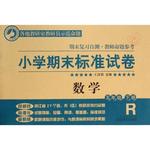
Follow your teacher’s advice, _______ you’ll make great progress in your English.
A.or B.and C.but D.so
B
【解析】
试题分析:句意:听从老师的建议,你的英语将会取得很大进步。祈使句+and/or简单句,and表示然后,就会;or否则,相当于if not。故选B。
考点: 考查连接词。
考点分析: 考点1:连词 连词是一种连接词与词,短语与短语以及句与句的虚词, 它不能独立担任句子成分而只起连接作用。连词主要可分为两类:并列连词和从属连词。

 提分百分百检测卷单元期末测试卷系列答案
提分百分百检测卷单元期末测试卷系列答案 小学期末标准试卷系列答案
小学期末标准试卷系列答案科目:初中英语 来源:2014-2015学年山东诸城市九年级下开学检测英语试卷(解析版) 题型:阅读理解
阅读表达(共5小题;每小题2分,满分10分)
根据短文内容,完成文后任务。
Many people would like to watch sport matches. First, you need to know about audience manners.
●Most sporting arenas(竞技场) have rules for audience written on the back of the tickets. Read your ticket carefully before you arrive. Try to reach your seat half an hour before the start of the event and don’t leave when a game is in progress. When you leave, remember to take away your soft drink bottle and other rubbish.
●During exciting games, try to control yourself. Don’t criticize(批评)the performance of players and coaches. Be careful with your words, since some may cause anger among other people in the audience.
●Applause(鼓掌)is a special form of body language you can use to communicate with players, but you should do it properly. When players first appear, clap your hands together to welcome them, but don’t go on for too long. After an excellent performance, applaud warmly. If someone fails, your applause will help encourage them.
●Applause is not welcome, however, while players need to keep their concentration. Various sports have various rules for the audience.
●Enjoy artistic gymnastics silently. But lots of cheering can really help basketball and football players. Snooker and table tennis courtside behavior includes a ban on flash photography. Mobile phones are not allowed in shooting centers.
●To be good audience, you should spend time learning the specific(明确的) rules and the culture of each event.
1.What should you do after you watch a game?
_____________________________________________________
2.Applause is always welcome, isn’t it?
_____________________________________________________
3.How many events are mentioned in the passage?
_____________________________________________________
4.What’s the best title of the passage?
_____________________________________________________
5.Translate the underlined sentence into Chinese.
_____________________________________________________
查看答案和解析>>
科目:初中英语 来源:2014-2015学年江苏阜宁县九年级上期末考试英语试卷(解析版) 题型:单项填空
Some robbers ________ the bank and took away lots of money.
A.broke to B.broke down
C. broke up D.broke into
查看答案和解析>>
科目:初中英语 来源:2014-2015学年山东滕州滨湖镇滨湖中学中考一模英语试卷(解析版) 题型:阅读理解
"How are you?" is a nice question. It's a friendly way that people in the USA greet each other. But "How are you?" is also a very unusual question. It's a question that often doesn't need an answer. The person who asks "How are you?" hopes to hear the answer "Fine", even if the person's friend isn't fine. The reason is that "How are you?" isn't really a question and "Fine" isn't really an answer. They are simply other ways of saying "Hello" or "Hi".
Sometimes, people don't say exactly what they mean. For example, when someone asks "Do you agree?", the other person might think, "No, I disagree. I think you're wrong..."But it isn't very polite to disagree so strongly, so the other person might say "I'm not sure." It's a nicer way to say that you don't agree with someone.
People don't say exactly what they are thinking when they want to finish talking with other people. For example, many talks over the phone finish when one person says "I've to go now." Often, the person who wants to hang up gives an excuse: "Someone's at the door." "Something is burning on the stove. "The excuses might be real, or not. Perhaps the person who wants to hang up simply doesn't want to talk any more, but it isn't polite to say that. The excuse is more polite, and it doesn't hurt the other person.
Whether they are greeting each other, talking about an idea, or finishing a talk, people don't say exactly what they are thinking. It's an important way that people try to be nice to each other, and it's part of the game of language.
1.When a person in America asks "How are you?", he or she wants to hear" ________ "
A.How are you? B.Hello.
C.I don't know. D.Fine.
2.When a person disagrees with someone, it is polite to say"_________ "
A.You are wrong. I disagree. B.I'm not sure.
C.I'm sure I disagree. D.I don’t agree with you.
3.A polite way to finish a talk is to say"__________"
A.You have to go now.
B.I want to hang up.
C.I have to go now.
D.I don't want to talk any more.
4. When a person says "I've got to go now. Someone's at the door.", the person may be_______.
A.giving an excuse
B.hurting someone's feelings
C.talking to a person at the door
D.going to another place
5.The rule of the game of language is probably____________ .
A."Always say what you mean"
B."Don't disagree with people."
C."Never say exactly what you're thinking."
D."Be polite."
查看答案和解析>>
科目:初中英语 来源:2014-2015学年山东滕州滨湖镇滨湖中学中考一模英语试卷(解析版) 题型:单项填空
Soon you _______ a senior high school student(高中生). Isn’t it exciting?
A.become B.will become
C.became D.have become
查看答案和解析>>
科目:初中英语 来源:2014-2015学年山东滕州滨湖镇滨湖中学中考一模英语试卷(解析版) 题型:单项填空
I wanted to explain, but he didn’t give me any _______.
A.chance B.excuse C.way D.choice
查看答案和解析>>
科目:初中英语 来源:2014-2015学年江苏扬州市片九年级3月月考英语试卷(解析版) 题型:阅读理解
Celebrating New Year’s Day is one of the oldest and most exciting traditions around the world. Since this festival marks the beginning of the year, New Year’s Day is thought of as a perfect time for a “clean start”. People in the world decide to act better in the year just beginning than the year just ended.
No day has ever been celebrated in so many different ways. All over the world, countries have their own special beliefs about what the New Year means to them.
In Scotland, the New Year is called Hogmanay. In the villages of Scotland, barrels of tar (沥青) are set on fire. It represents that the old year is burned up and the new one is allowed to enter.
New Year’s Day is also the Festival of Saint Basil in Canada. Children leave their shoes by the fireside on New Year’s Day with the hope that Saint Basil, who is famous for his kindness, will come and fill their shoes with gifts.
The Jewish New Year is called Rosh Hashanah. It is an important time when Jews promise to do better in the future. Special services are held in the church, children are given new clothes and New Year bread is cooked to remind people of harvest time.
On New Year’s Day in Japan, everyone gets dressed in their new clothes and homes are decorated (装饰) with bamboos—symbols of long life.
In European countries such as Germany, France and Belgium, families start the New Year by first attending church services. Afterwards, they visit friends and relatives. In France, boys and girls receive gifts of money on New Year’s Day.
New Year celebrations around the 1.
Country/people | Celebration activities | Special beliefs |
Scotland | People 2. barrels of tar. | The old year is burned up and the new one is allowed to enter. |
Canada | Children leave their 3. by the fireside. | Their shoes will be 4. with gifts by Saint Basil. |
Jews | It is a time for people to 5. to do better in the future. People 6. New Year Bread to remind of harvest time. | |
Japan | People 7. their new clothes. Homes are decorated with bamboos. | Symbols of 8. life |
European 9. | People attend church services 10. visiting friends and relatives. |
查看答案和解析>>
科目:初中英语 来源:2014-2015学年江苏扬州市片九年级3月月考英语试卷(解析版) 题型:单项填空
My dad often ________, but my mother never takes any _______.
A. exercise, exercise B. exercises, exercises
C. exercises, exercise D. exercise, exercises
查看答案和解析>>
科目:初中英语 来源:2014-2015学年河北承德市九年级第一次月考英语试卷(解析版) 题型:单项填空
The______friends you have ,the happier you will be .
A. many B. much C. more D. most
查看答案和解析>>
湖北省互联网违法和不良信息举报平台 | 网上有害信息举报专区 | 电信诈骗举报专区 | 涉历史虚无主义有害信息举报专区 | 涉企侵权举报专区
违法和不良信息举报电话:027-86699610 举报邮箱:58377363@163.com